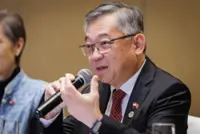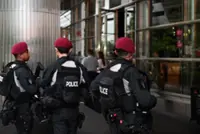PM Lawrence Wong noted that resolving the protracted crisis in Myanmar is not so straightforward. - PHOTO: LIANHE ZAOBAO
VIENTIANE, Laos (The Straits Times/ANN): By working together to reap benefits, Asean and its partners are trying to show a different way forward at a time when more countries are talking about barriers and protectionism.
The world is moving in a “somewhat different direction”, and it is all the more important that Asean’s 10 member states and partner nations take steps to accelerate regional integration, said Prime Minister Lawrence Wong on Oct 12.





